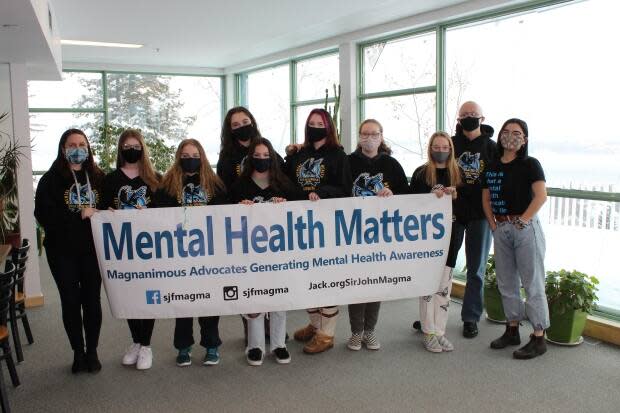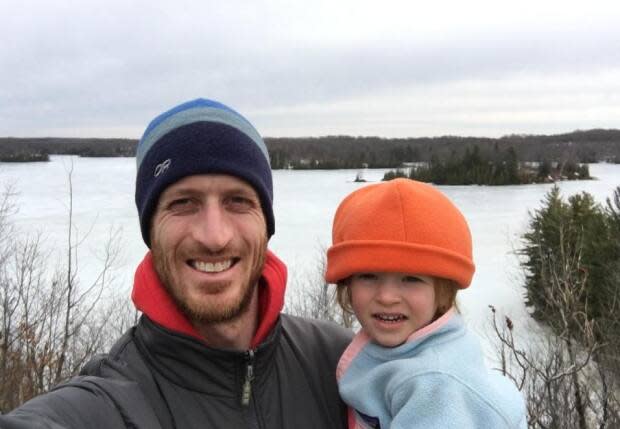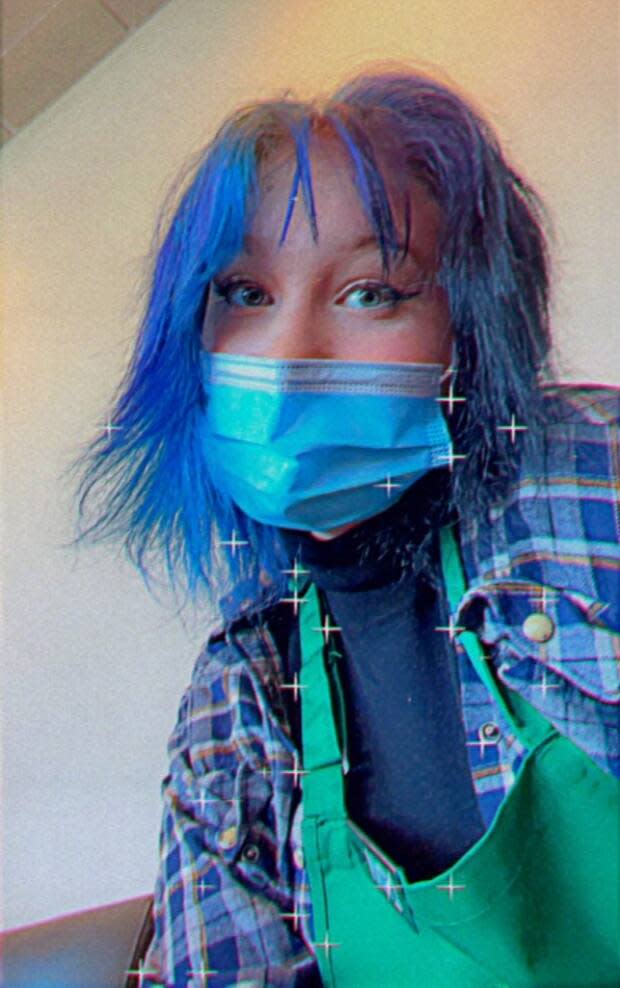Yellowknife students adapt to online learning during COVID-19 outbreak

Jimena Maule is back where she was one year ago: studying math at home, on her own.
It's away from her Grade 10 classroom — and all her friends.
"Half of my friends absolutely love the online school because of their anxiety and not having to go to school makes it a little better for them. But for me, personally, I love school. I need the social interaction," said Maule.
Sudden school closures after an outbreak at N.J. Macpherson forced all Yellowknife schools into remote learning and students and teachers say that means changes to their learning environment, social life and student mental health.
Maule, 15, is a member of a student-led mental health advocacy group called MAGMA (Magnanimous Advocates Generating Mental Health Awareness), a group that shifted their advocacy online during the pandemic.
"Not everyone knows how to take care of themselves and make sure their mental health is well," said Maule.
"There is a lot of stigma and not a lot of people know that mental health is just as important as physical health."
Students learning from home are adapting to online learning, Maule said, and they worry about whether they will be able to pass classes like math.
"Not everyone has WIFI or a computer and some people have to share a computer with everyone in their family," she said.
"There are a few kids, who, online learning really isn't for them," she said, and some students aren't just falling behind, they're at risk of dropping out over the many disruptions to their learning, she said.
Teaching peer support, promoting resources
Denise Hurley, a program support teacher at Sir John Franklin High School and teacher supervisor for MAGMA says the school is doing check-ins with students.
"Our students have been very adaptable and very resilient in dealing with the impacts of COVID-19 but of course many of them have experienced social isolation, definitely increases in stress and anxiety [and] virtual learning fatigue," she said.
"Students are struggling with not being able to interact with their peers the way they're used to."
MAGMA gives resources to students and teaches them five golden rules: to speak to your peers if you see sudden or unusual changes, show them you care and hear them out with non-judgment. As well, and perhaps most importantly, they teach youth to protect themselves by recognizing they're not trained mental health professionals, and to share resources to connect them with someone who is.
The territorial government, for example, just came out with an e-mental health program for youth ages 13-24 called Breathing Room, said Hurley.
The school also has child and youth care counsellors, who have seen an increase in demand for their services, and also experience fatigue themselves, said Hurley.
N.J. Macpherson has also made those counsellors available by phone during the outbreak.
Teachers creating space for check-ins, socializing

Sean Magee is a Grade 7 and 8 teacher at Range Lake North School.
As classes move online, Magee is mindful to take time while teaching math or social studies to break out into smaller groups and leave time for "connecting with each other," he said.
He starts every conversation or email with a focus on emotional well being.
"We know if kids are [emotionally deregulated], they're not going to learn that day. So, how do we make sure they feel good in their head? Then the learning can begin and will be more fruitful," he said.
"We get it and we care. We're not going to penalize them or make them feel bad about the fact that they need to maybe step away for a little bit," he said.
Some students will see the outbreak as a mere "blip" when they have the resources they need, while others who were previously thriving may struggle through online learning, he said.
"We know marginalized communities and individuals are going to have a harder time … if you don't have reliable internet access or you don't have a working laptop at home or a space to quietly focus on your work, you're not going to get a lot out of the next couple of weeks," he said.
Young parents struggling
Magee says many young parents, up against "crazy-huge demand for high quality child care" are struggling. Most of the time, they are paying out-of-pocket and don't have paid sick leave at their jobs.
"Supporting families and thinking about how we build a social safety net that really takes care of people who are our most vulnerable, which is children and their caregivers," he said.
But, kids deserve credit for their strength too, he said.
"Kids are super resilient," Magee said, adding the narrative at times needs to shift toward "celebrating how amazing it is that they [can] keep moving forward."
'That little feeling of last year'

Lana Saunders, 16, is a Grade 10 student at Sir John Franklin High School and has been part of MAGMA for two years, volunteering to make sure her peers feel happy and safe.
She says that while learning from home is a flashback to last year, many students have learned to work around their new normal.
They video call and have online movie watch parties, but today there is "that little feeling of last year" as many people are in isolation.
But, with the Pfizer vaccine newly available to students her age, Saunders says there's a bit of light.

 Yahoo Movies
Yahoo Movies 